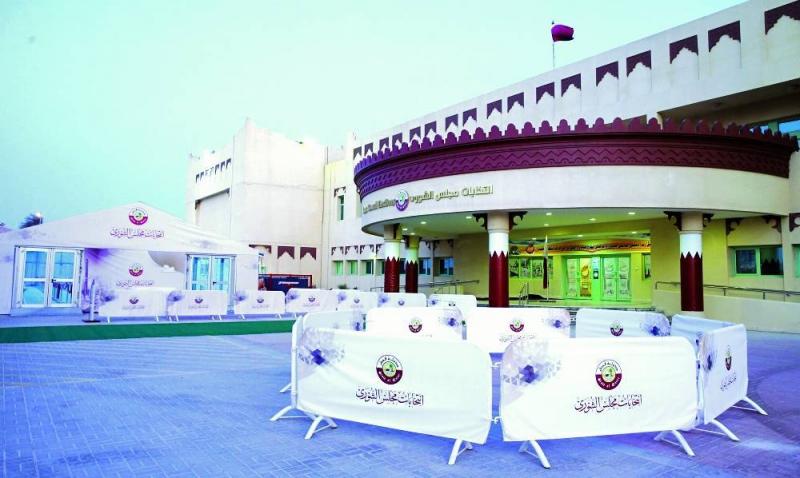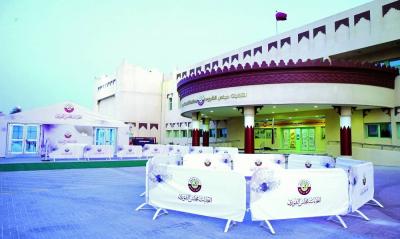Today, registered voters are heading to the polls to cast their votes and elect members of the Shura Council, where the electoral process features intense competition among 252 candidates, including 27 women, across 30 electoral districts. This follows an election campaign period during which candidates presented their programs to voters, explaining and clarifying the key points of these programs that address the dreams and aspirations of all segments of society. Throughout this phase, candidates aimed to gain the trust and votes of their constituents to secure favorable results in the elections. Voters expect to see the promises, programs, and plans provided by the candidates represented within the next Shura Council.
According to data from the voter registration period across various districts, through the campaign period and up to the silence period that ended yesterday and the commencement of voting today, the process has proceeded smoothly, with adherence to regulations and laws. This reflects a high level of awareness and commitment to achieving the aims of the elections in service to the citizens of the nation. The prevailing spirit indicates that everyone is a winner and that competition concerns electoral programs rather than individuals.
The electoral process underscores the leadership's commitment to public participation in decision-making and the formulation of legislation that meets the needs of all sectors in both the present and future, recognizing that the legislative process is ongoing and evolves according to community realities and developmental necessities. This is facilitated through the election of representatives from all segments of society to the elected council.
The electoral programs converged with citizens' desires, offering solutions by focusing on issues such as retirees, empowering youth and women, developing infrastructure, providing educational opportunities, enhancing healthcare, creating investment opportunities for the youth, and supporting underprivileged families, those with special needs, and widows.
The electoral programs blended political, service, and developmental elements, fulfilling citizens' aspirations while ensuring the enhancement of the rule of law, institutional governance, financial control, prudent spending, and combating financial and administrative corruption.
The diversity of electoral programs during the campaign phase highlighted detailed focuses, with candidates competing to raise several significant issues. Top priorities in the electoral campaigns include the development of the health, education, employment, housing, economy, investment, localization, support for retirees, food security, and other pressing matters that citizens hope will result in legislations and laws that contribute to the welfare and prosperity of all community segments, in addition to supporting the ongoing development in various fields.
Encouragingly, the electoral programs did not overlook any vital elements for the public; they encompassed all essential sectors, making all candidates capable of shouldering the responsibility. However, the real test is whether these programs can be implemented.
The commitment to the law was the most prominent factor in the previous phase, hence it is hoped that the electoral process will continue today with voting and the selection of new Shura council members based on electoral programs and the candidates' ability to work grounded in clear visions and defined goals.
Today, voters aspire for candidates to adhere to the electoral promises made during the campaign phase, and propose laws and legislations that serve the citizens as mandatory commitments. Undoubtedly, the electoral program is a commitment that cannot be postponed; it is a contract and a covenant between the winning candidate and the voters, thus it defines the future of the Shura member's return to the Shura Council.
Perhaps the pressing question for voters today is: who is the appropriate candidate deserving of my vote and trust to become a member of the next Shura Council, and who can achieve the ambitious goals under which these elections were held to form an elected Shura Council.
The Emiri decision has clarified these goals, delineating their objectives, aimed primarily at forming an elected council that prepares the ground for an active, strong council capable of supporting the executive authority in fulfilling its duties, based on several elements, the foremost being adherence to laws, effective coordination between citizens and government, and aiding the executive body in fulfilling its responsibilities while addressing citizens' goals, wishes, and aspirations.
In response to the question of who the appropriate candidate is, the electoral process itself grants voters the right to provide a practical answer to this question. Nevertheless, the most suitable candidate is one who possesses experience, the ability to work, and a clearly defined electoral program with diverse options that is realistic and executable. Certainly, it is the citizen who bears the burden of choice, building their decisions on personal or emotional basis wholly unrelated to public service, societal benefit, and the capacity to shoulder responsibility.
Congratulations in advance to the winners, with the hope that they will fulfill their mission with ambitious and realistic work programs serving the citizens, for victory is a means and not an end for each member aspiring to serve the citizen and the nation.




